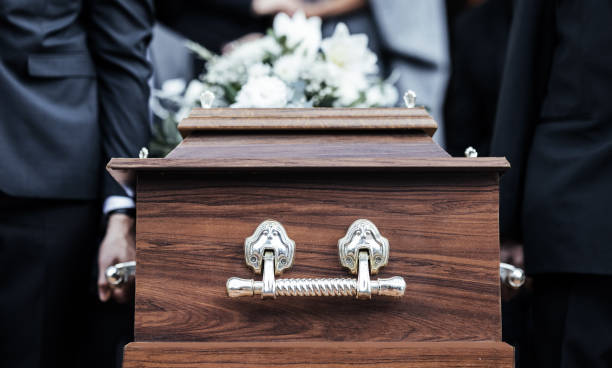According to a recent survey, 70% of American adults believe that children should not attend funerals. One of the main reasons cited for this belief is the fear that children may become traumatized by viewing an open casket.
However, experts argue that avoiding the topic of death and shielding children from the reality of funerals can actually be harmful in the long run. Instead, parents should consider several factors before deciding whether their child should view an open casket, including the child’s temperament, anxiety levels, and ability to remain engaged during the ceremony.
Explaining death to children can be a challenging task, but it is an important part of helping them understand and process the concept of death. Children’s understanding of death varies depending on their age and developmental stage, and parents should tailor their explanations accordingly.
While some children may not be ready to view an open casket, others may benefit from the opportunity to say goodbye and gain closure. In this article, we will explore the factors parents should consider when deciding whether their child should view an open casket and discuss helpful resources for talking to children about death and attending funerals.
Explaining Death to Children
When it comes to explaining death to children, experts advise being honest and open about the concept of loss, understanding that children’s understanding of death varies depending on age, experience, and neurodivergence. It is important to choose age-appropriate language and approach when discussing death with children.
For instance, toddlers and younger children may not understand the concept of death, but are aware of their caretakers’ emotions. On the other hand, adolescents and children in first grade and beyond will have more questions and feelings about death and may become anxious and grief-stricken.
It is also crucial to explain the permanence of loss to children. It can be challenging for children to grasp the idea that their loved one will never return. Experts recommend using clear and direct language when explaining the concept of death and avoiding euphemisms such as ‘passed away.’
It is important to have an open discussion beforehand and provide children with support and comfort as they process their grief. Overall, approaching the topic of death with honesty and sensitivity can help children understand and cope with the loss of a loved one.
Children’s Understanding of Death
Young children in preschool have a limited understanding of death, recognizing that it means someone is gone but not comprehending its permanence. They may ask questions such as ‘When will they come back?’or ‘Why aren’t they waking up?’
The concept of death can be challenging for young children to grasp, and their emotional reactions vary based on their developmental stage, experiences, and cultural differences. Some cultures may have different beliefs and rituals surrounding death, which can affect how children understand and cope with loss.
Children’s emotional reactions to death also vary widely. Some may become upset and cry, while others may not show any outward signs of distress. It’s important for caregivers to be attentive to children’s emotional needs and provide support and comfort during this difficult time.
This may involve answering their questions honestly, providing reassurance, and offering opportunities to express feelings through activities such as drawing or talking. Overall, understanding children’s emotional reactions to death is crucial in helping them cope with loss and navigate the grieving process.
Attending Funerals and Religion
Attending funerals can provide an opportunity for children to say goodbye to a loved one and participate in the grieving process. According to a study, attending a parent’s funeral had no enhanced trauma symptoms in young attendees. However, some parents may worry that exposing their child to an open casket or witnessing the burial of a loved one may cause trauma. It is crucial to consider the child’s emotional state, temperament, and anxiety level before deciding whether to bring them to a funeral. Parents should provide their child with plenty of support, love, and affection during this time.
Religion can offer a framework for understanding death as a natural part of life. It can provide comfort and hope for those grieving the loss of a loved one. The cultural differences surrounding death and funeral practices may influence a child’s understanding of death. Therefore, it is essential to explain to children that everyone and everything eventually dies, and it is a part of the cycle of life.
While attending funerals and discussing religion can have benefits, parents should also be aware of the drawbacks and be sensitive to their children’s needs during this time.

